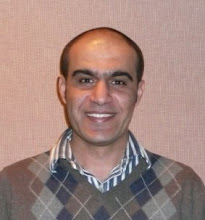Kurdistan is no longer the region we had known. Its political, social and economic elements are changing on daily bases. Although change is always a good thing; but it can bring with it unexpected ramification and consequences.
The economic arena of Kurdistan had started to change in the 90s. But after the Iraqi Freedom process in 2003, globalization, open trade and market mechanisms has been one of the basic characteristics of Kurdistan's economy.
This had significant impact on the health care sector. Health care has been strictly controlled governmental business, ruled through the notion of centralized planning, financing and administration. Opening up to outside trade and the growth of an active private sector, has changed that too.
A simple overview of the data available at the Directorate of Health in Erbil Governorate, demonstrate alarming expansion of the private sector at the expense of the public one. For example in 2009 the percentages of the patient’s beds in privately funded hospitals in Erbil city was two times higher than the same percentage for 2008. The percentage for 2008 stands is 5% while that of 2009 is 11%.
What is more interesting to examine is the rate at which that increase in the number of the privately funded patient bed had happened. Since 2005 (the year where data is available) the number of the beds remained the same through 2008. From November 2008 to November 2009, the number of the beds in private hospital increased from 96 patient beds to 216. This puts the rate of increase of those private patient beds at 120%.
Comparing that number to the 44% increase in the number of the publically funded patient beds, demonstrate the fact that the private sector in Erbil city is expanding at an alarming rate compared to the publically funded health infrastructure.
It is obvious that the government alone cannot finance and administer health services. The private sector can act as a crucial partner of the government in providing health care services that are either too expensive for the government or so necessary that cannot wait the bureaucratic procedures of the government.
What is interesting, however, is two things;
First, all those private beds where for profit businesses and none were not-for-profit private enterprises. Second, it is painfully evident that the government and the Ministry of Health has no regulations to control the work of the private health sector in order for the latter to rise to the mission and vision of the government in terms of health and health care.
The Ministry of Health and the Health Committee in the Parliament of Kurdistan should take this matter seriously and start to take action to regulate the enormously growing private for-profit health care in Kurdistan.
Monday, January 18, 2010
Subscribe to:
Posts (Atom)











